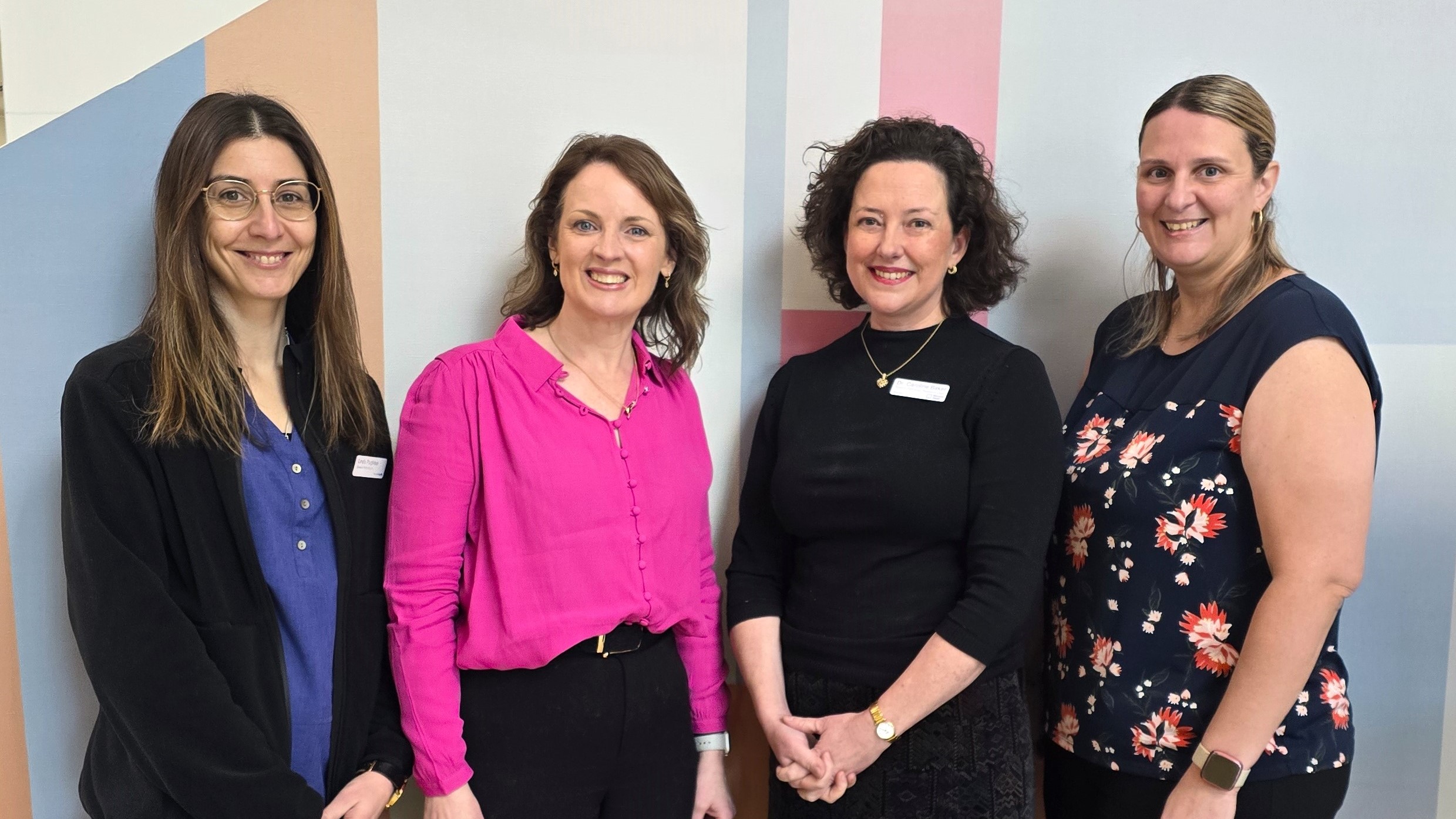
L-R: Linda Pugliese (Speech Pathologist), Julianne Jamieson (Speech Pathologist), Dr Caroline Baker and Maggie Tolis (Social Worker).
An innovative Australian study has trialled a new mental health intervention designed specifically for people with aphasia, a communication disability most commonly caused by stroke.
The program, called Aphasia PRevention, Intervention and Support in Mental health (Aphasia PRISM), aims to bridge a critical gap in psychological care.
Aphasia affects approximately 25% of stroke survivors and is frequently accompanied by depression and anxiety. Yet, access to mental health support remains limited due to communication barriers and a shortage of trained professionals.
Lead researcher Dr Caroline Baker, who is the Research and Clinical Practice Lead in the Speech Pathology Department at Monash Health, said Aphasia PRISM addresses this by training non-psychologist stroke clinicians—such as speech pathologists, social workers, and occupational therapists—to deliver low-intensity psychological therapies using communication supports.
‘People with aphasia and mood problems are at high risk of disengaging from rehabilitation services, social isolation and problems with returning to work,’ Dr Baker said.
‘This can negatively impact their general health, relationships and overall quality of life.’
The study began in September 2021 across metropolitan and regional sites in Victoria, and the research team completed data collection in June 2024.
Participants were offered a choice from three therapy options—behavioural activation, problem-solving therapy, or relaxation therapy—delivered over 7 weekly, hour-long sessions either in person or via telehealth. The program also included follow-up assessments (up to 6 months) to evaluate clinical outcomes such as mood, communication confidence, and quality of life.
Dr Baker explained that she and her research team developed training workshop content and resource materials for the therapists. The stroke clinicians delivering Aphasia PRISM therapy were required to attend 8 hours of training. Early results suggest positive responses from participants and clinicians, with improvements in learning new ways to manage mood and well-being. The study’s findings could pave the way for broader implementation of Aphasia PRISM in stroke rehabilitation services across Australia.
‘Overall, the Aphasia PRISM intervention is a highly acceptable way to offer low-intensity psychological therapies by trained stroke clinicians.
‘One of the things that really stood out for me was that Aphasia PRISM gave participants a choice and fresh approaches to overcome mental health challenges.
It provided the communication tools and support to enable participants to ‘get back to living’ in the community, either doing things they love and enjoy, like art, tackling a problem using step-by-step actions, or learning relaxation to calm their body and mind.
‘Future phase II research would enable the intervention to be offered to a greater number of health networks (public and privately funded), with the potential to establish an outpatient clinic,’ Dr Baker said.
The research is funded by Speech Pathology Australia and the Stroke Foundation.
June was Aphasia awareness month. For more information about aphasia, please visit the Australian Aphasia Association.


